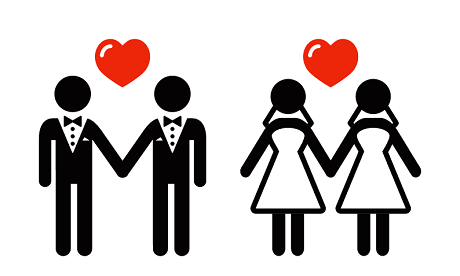Australians’ “yes” vote supporting legalising same-sex marriage may pose more questions than answers.
The non-binding referendum drew 7.8 million for same-sex marriage and 4.9 million against.
Australian Catholic Bishops Conference president Archbishop Denis Hart says parliament must work to unify Australians by respecting different views on marriage.
“The Catholic Church, and many others who sought to retain the definition of marriage … continues to view marriage as a special union between a woman and a man …” he says.
“A change in civil law does not change the Catholic understanding of the nature of marriage.”
Chief executive of Catholic Social Services, Frank Brennan SJ, doesn’t think the clear “yes” vote will make Parliament’s job easier.
Last Thursday, while the votes were still coming in, he said: “The present mess of Australian politics will not help as our politicians work out how and when to legislate the change.
“Already, there are different proponents for different private members’ bills which could be presented first in either House of Parliament.”
Brennan wrote about the issue on the Jesuit-operated Eureka Street website.
“Those who have campaigned loudest and longest for a ‘no’ vote have emphasised threats to other human rights, most especially the right to freedom of conscience, religion and belief. But they are not the only ones …
“The Senate Select Committee … [noted]: ‘There was common ground between many groups on the need for positive protection for religious freedom.
“‘The Human Rights Law Centre and other organisations in support of same-sex marriage recognised the need for Australian law to positively protect religious freedom.’The issue of religious freedom must be addressed’.”
Brennan went on to quote Anna Brown, who is Director of the Human Rights Law Centre and former Spokeswoman for the Equality Campaign:
“Religious freedom should be protected in law. Indeed, we are on record in a number of inquiries supporting the addition of religious belief to protections under federal anti-discrimination law.”
The UN Human Rights Committee in Geneva is also concerned, Brennan says. In a recent report, the Committee was bothered by “the lack of direct protection against discrimination on the basis of religion at the federal level …”.
The Committee also noted “a parliamentary inquiry on the status of the human right to freedom of religion or belief is underway.”
“No” voters are also concerned about religious freedom.
They argue protections for freedom of religion should be inserted in the amended Marriage Act, especially to ensure:
- the right to refuse to conduct same-sex marriages
- protection for employees
- protection for churches as employers and property holders
- protection for churches as educators
- protection for parents’ and guardians’ right to teach their children according to their religious faith
- protection for parents’ and guardians’ right to spare their children teachings inconsistent with their religious faith.
Source
